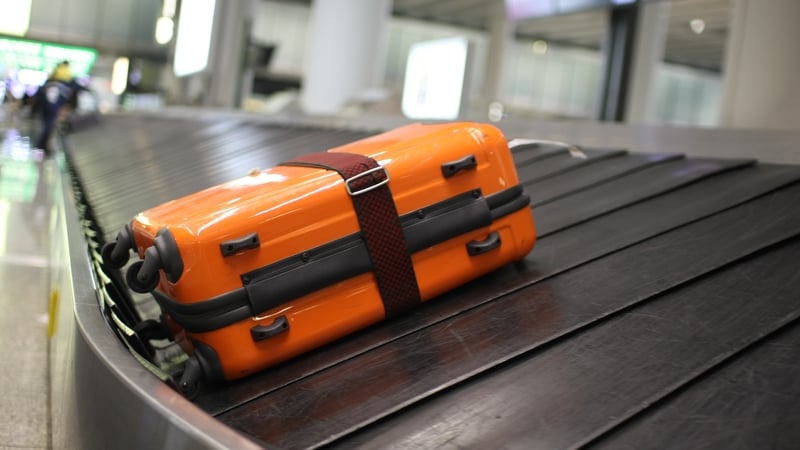Consumer complaints about an airline’s baggage rules are par for the course – especially at this time of year, as airports fill with summer travellers.
This week, though, a far more significant complaint was made about the practices and prices that carriers impose – with the European Consumer Organisation (BEUC) asking the European Commission to look at what it says are the “undue fees to consumers for their hand baggage”.
The complaint specifically calls out seven carriers – including Ryanair, EasyJet, Wizz Air and Vueling – and claims they are exploiting customers while ignoring an EU court ruling, which said airlines cannot charge extra for bags that are of a ‘reasonable’ weight and size. Ryanair, for its part, has welcomed the BEUC complaint, saying it expects it will show that its baggage policy is compliant with that court order.
What the row ultimately boils down to seems to be what constitutes a ‘reasonable’ size bag. The European Commission is already looking into the baggage rules of airlines in the bloc, with a view to potentially standardising them across the region. BEUC clearly hopes that, as part of that, they will also set clearer rules on what size of bag has to be included in the basic ticket price.
But whatever comes of the BEUC complaint, and the Commission’s broader investigation, it’s not going to be of much benefit to the passengers jetting off this weekend – or those who are looking forward to an overseas trip in the months to come. Instead, they’ll have to ensure they’ve gotten to grips with the web of rules and charges that their airline has in place – and failing to do so could cost them a significant amount of money.
So what’s included in my ticket price?

That EU court ruling says that airlines operating in the bloc cannot charge for a ‘reasonable’-sized bag. But Ireland’s two main airlines – Ryanair and Aer Lingus – clearly take a different view on what that means.
As part of its basic fare, Ryanair allows passengers to carry a ‘small’ bag onto the plane – measuring up to 40x20x25cm. This would be equivalent to a small-to-medium-sized handbag, a laptop bag or a small backpack.
Aer Lingus, meanwhile, allows passengers to carry a ‘small personal item’ on-board – which is a bag measuring no more than 33x20x25cm; that’s slightly smaller than what’s permitted by Ryanair. However Aer Lingus’s basic ticket also includes a second bag – which can measure up to 55x40x24cm and weigh up to 10kg. The only catch here is that this bag is only “free” if it’s checked in at the airport – those wishing to carry it onto the plane will have to pay €10 extra.
What happens if my carry-on bag is too big?
This is where things can get messy – and expensive.
With Aer Lingus, for example, passengers that bring their “free” 10kg bag to the boarding gate without already having paid to do so will have it placed in the hold, at a cost of €35.
If your ‘small personal item’ is deemed to be too big, it too may need to be placed in the hold – also at a cost of €35.
For Ryanair, passengers who arrive at the boarding gate with a larger carry-on bag they haven’t paid for – or a bag that exceeds its ‘small’ hand luggage rules – could be charged up to €60 to check the bag in.
What if I’ve already paid to bring a larger carry-on bag?

You still need to make sure to follow the airline’s rules around the bag’s size and weight.
For example, Ryanair allows customers who pay for a ‘Priority’ ticket to bring a larger cabin bag on board, weighing up to 10kg and measuring no more than 55x40x20cm.
But if this exceeds their restrictions, customers could be forced to pay up to €75 to have it checked in. If you’re part of a family with more than one bag that breaks the rules – and potentially have to factor in similar costs on the return flight – this could represent a serious ramping up of the trip’s cost. It might even see you paying more in baggage fees than you paid for the seat on the plane.
For Aer Lingus, meanwhile, even those who have paid to carry on a larger bag (which is up to 10kg, measuring 55x40x24cm) will face a €35 charge if it’s deemed to be too big at the boarding gate. Given that you’ll have already paid €10 to allow you to carry it onto the plane, that’s a potential total baggage bill of €45.
How can I make sure I don’t get caught out?
It might be an obvious answer – but you should check and double check the bags your using.
Measure its dimensions to ensure it’s within the rules – bearing in mind that it may not be accepted if so much as a handle or wheel is over the line. There are also anecdotal reports of some airline staff not accepting hand luggage if it has to be stuffed into their measuring cage – so no harm giving yourself a little bit of leeway if you can.
And it is worth double checking with your airline before flying – rules can change and a bag that was fine last year may not be accepted now. Bear in mind too that each airline has different rules – even Aer Lingus Regional flights have a tighter restriction on their ‘large’ carry-on bags than regular Aer Lingus flights – with a 7kg weight limit on a bag measuring no more than 48x33x20cm.
If you don’t have a bag that falls within your airline’s rules and need to pick one up, there are plenty of retailers and manufacturers (particularly online) that sell ones specifically designed to fall within carry-on rules – both for small personal bags and larger cabin bags. Given the popularity of Ryanair across Europe, many of these bags are specifically tailored to its rules, and they are often quite reasonably priced too.
It may also be worth investing in a handheld luggage scale to make sure you’re staying within the weight limit – they are usually compact enough to pack away for the return leg, and can cost as little as €6. That’s money well spent if it helps you avoid the €13 per kilo Ryanair charges for an overweight bag (Aer Lingus, meanwhile, charges €10 per kilo).
Are there other ways to keep a lid on baggage costs?

Being as ruthless as you can with what you bring is the most obvious answer to this – as it is the easiest way of reducing how much baggage space you need and, in turn, how much baggage you need to pay for.
Many small travel bags available on the market today can help with this, as they are laden with compartments and containers to help users squeeze as much as possible into the space.
However, if you do have to pay for extra baggage, the best thing to do is to book it as early as possible.
Much like its fares, what Ryanair charges for extra baggage tends to be lower the further away you are from the travel date. Its priority seating, which includes the larger 10kg carry-on bag, can cost as little as €6 when making the booking… but as the plane’s seats fill up, that charge can rise to as much as €36.
Similarly, it’s 10kg checked bag can cost €9.49 per flight if booked in time – but it can be as much as €44.99 if you’re making a last minute trip. And its 20kg checked bag can cost €18.99 when booked early, or as much as €59.99 when it’s close to departure day.
It also pays to make a call on a bag at the time of booking rather than leaving that decision until later. Ryanair charges customers more for adding on a bag after they’ve completed their initial booking – with the minimum price of priority seating, for example, going from €6 to €20 – with the maximum price topping out at €60 instead of €36.
It’s a similar situation with Aer Lingus.
When it comes to European flights, it charges between €25 and €55 for a 20kg checked bag when it’s added at the time the booking is made. The lower price is largely charged on flights to destinations in Ireland and Britain, while the higher charges are reserved for flights to southern Europe and north Africa.
But if the passenger waits until after they’ve made the booking to add on a large bag, the cost rises slightly, to between €27 and €57. And if the passenger leaves it until they get to the airport, checking in the same bag will cost them between €35 and €65.
For transatlantic flights, meanwhile, a 20kg checked bag will cost an Aer Lingus customer €44.99 when booked online – but it will set them back €75 if they wait until they get to the airport to book it.




